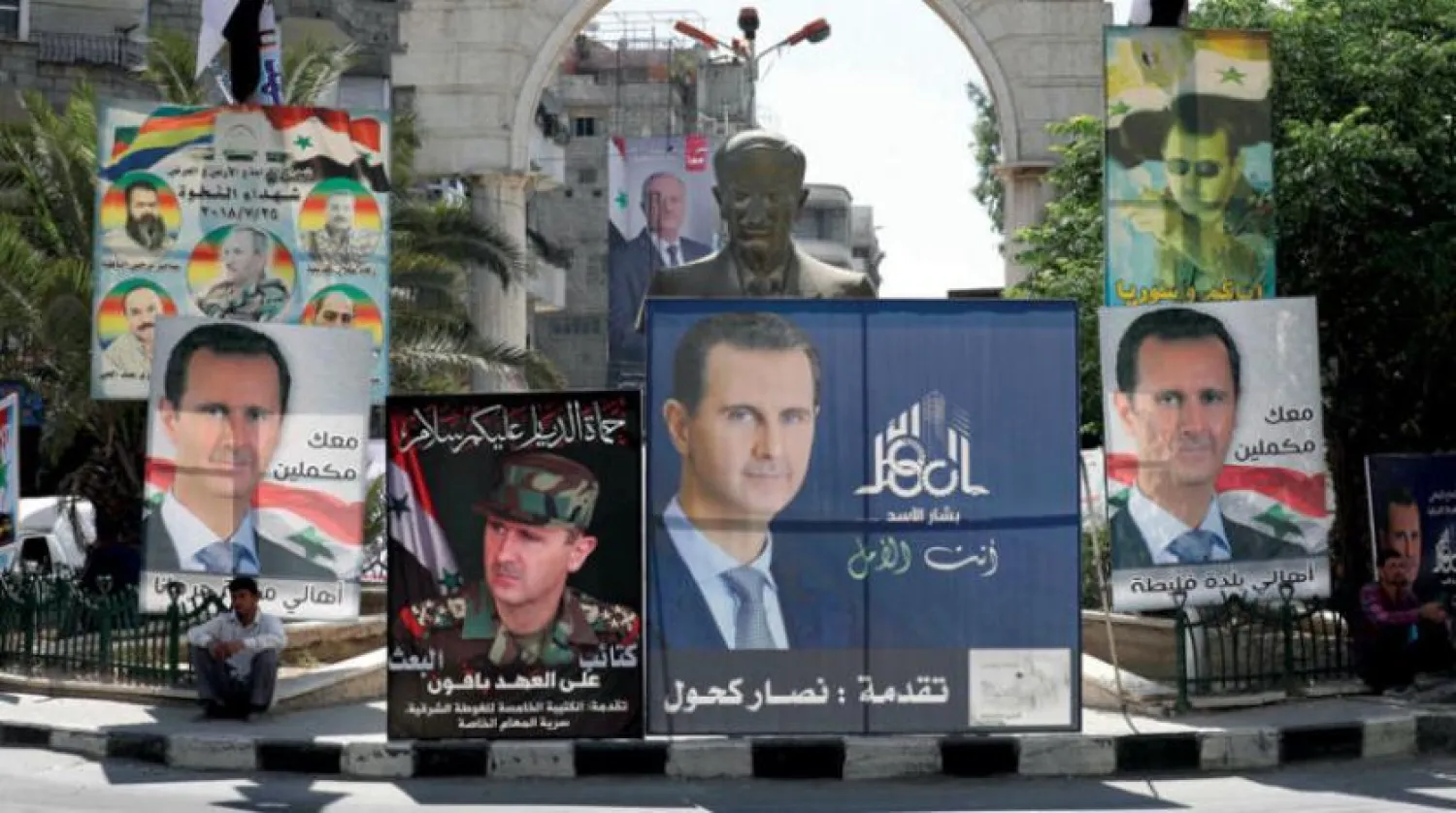Syria will hold Wednesday its second presidential elections since the outbreak of the conflict, and they are all but certain to deliver a fourth term for President Bashar al-Assad.
Syrian Foreign Minister Faisal al-Mikdad said that the presidential elections are “thousands of times better” than in the US, which he described as “a farce.”
Mikdad described the voting processes in Syria’s embassies as “very remarkable” and having an “atmosphere of freedom and democracy” in which Syrians expressed “their views with great precision and freedom.”
Mikdad was speaking after the delivery of the voting results at Syrian embassies to the Justice Ministry. He said that the elections inside the country will reflect the views of all Syrians, despite all the propaganda made by the “malicious media, politicians and criminals.”
“When Syrians go to polling stations in all provinces next Wednesday, they will demonstrate their commitment to their homeland, the reconstruction, the fight against terrorism, and their support to their army till achieving the final victory,” Mikdad was quoted by SANA.
In the capital Damascus, Assad's portraits line roads and inundate main squares, outnumbering those of his two little-known challengers. They are former state minister Abdallah Salloum Abdallah and Mahmoud Merhi.
His campaign slogan, "Hope through Work", evokes the reconstruction of a country ravaged by a decade-long conflict that has claimed more than 388,000 lives and displaced half of Syria's pre-war population.
Fabrice Balanche, a geographer and specialist in the political geography of Syria, believes that Syrians will vote to “pledge allegiance to Assad and to the regime.”
By holding elections on a regular basis, Assad is attempting to prove that "Syrian institutions are functioning," he said.
However, elections will only be held in two-thirds of the country under regime control. Syrians who voted in their country's embassies and consulates abroad are of course not among the millions of opponents who have fled the country.
Several Western countries say the vote is a sham and neither free nor fair.
One of the conditions for running for elections states that the candidate must have resided in Syria continuously during the past ten years, which means no opposition figure residing abroad is allowed to run.
Assad refrained from holding any press interviews or events during the electoral campaign. However, he recently issued a series of decisions and laws in an attempt to improve the economic and service situation, including a general amnesty for thousands of prisoners.
Bashar’s campaign team published a promotional video on the Facebook page ahead of the polls.
"Bashar's election campaign emphasizes his role as the man who won a war (and) has big ideas for Syria's reconstruction," said Nicholas Heras of the Newlines Institute in Washington.
It presents him as “the only person who can manage the resumption of order and reconstruction from the chaos of the Syrian conflict.”
According to Heras, Assad's campaign targets international donors more than Syrian voters, saying he is running “a long infomercial for potential foreign backers that he is their only choice for stability after Syria's war.”
The regime forces regained control over several areas after receiving direct military support from Iran and Russia.
After years of “diplomatic estrangement”, the UAE has taken several steps towards rapprochement with Syria and reopened its embassy in Damascus. It also provided medical aid.
The international community wants to ensure a political settlement in Syria through the UN-sponsored Constitutional Committee, formed in 2019, which held several meetings in Geneva without any results.
The UN hoped the committee's work would pave the way for developing a new constitution, which will be the basis for the presidential elections and under its supervision. The delegations failed to reach an agreement before the vote.
Syria expert Samuel Ramani believes the election "will be a major setback for the constitutional process” and it will “reaffirm to the international community, Russia and Iran included, just how difficult a settlement will be."
In 2014, Assad won the polls with 88 percent of the vote, however, a European diplomat believes that this time, Assad is running the “risk of being the only certainty in a country in ruins.









